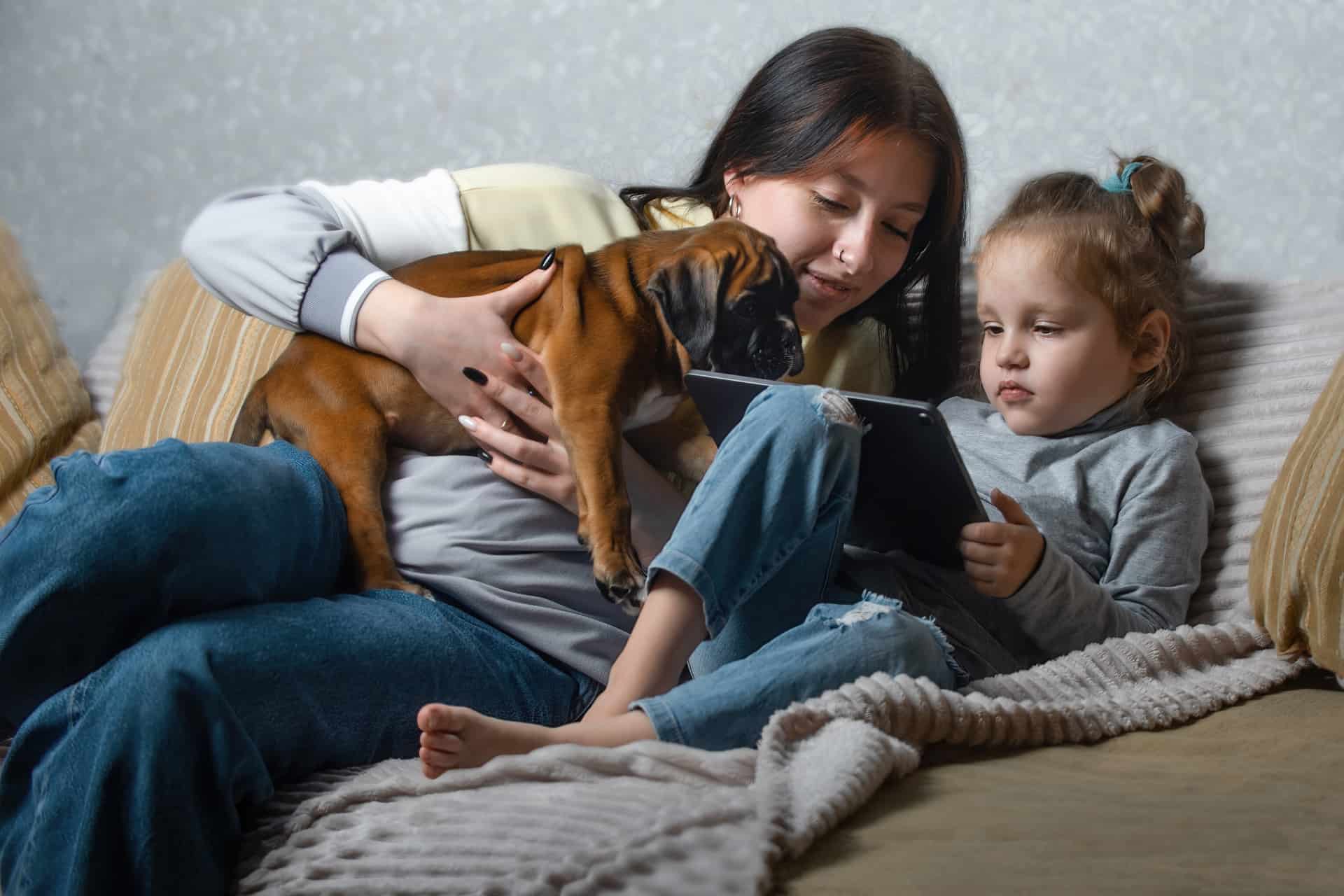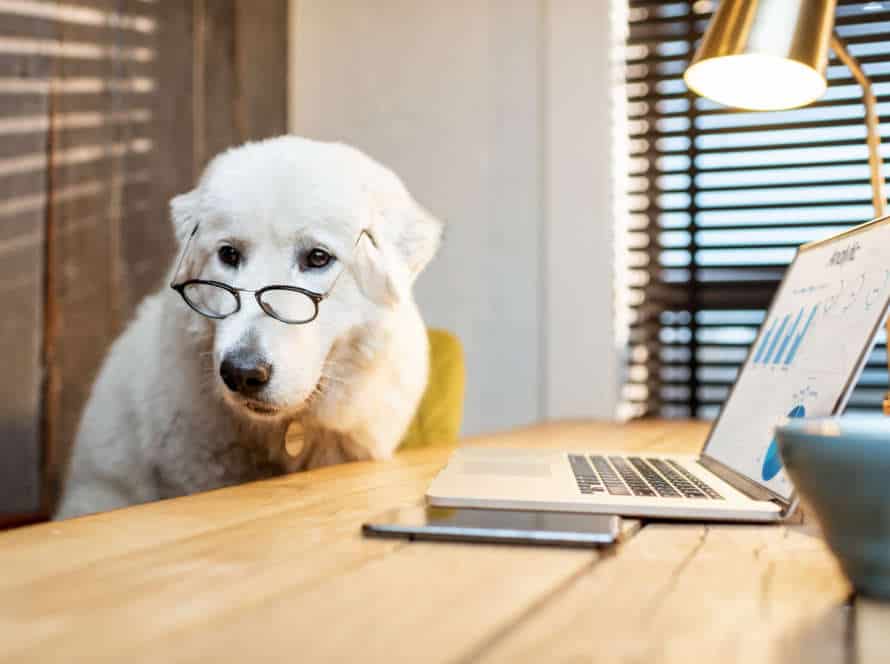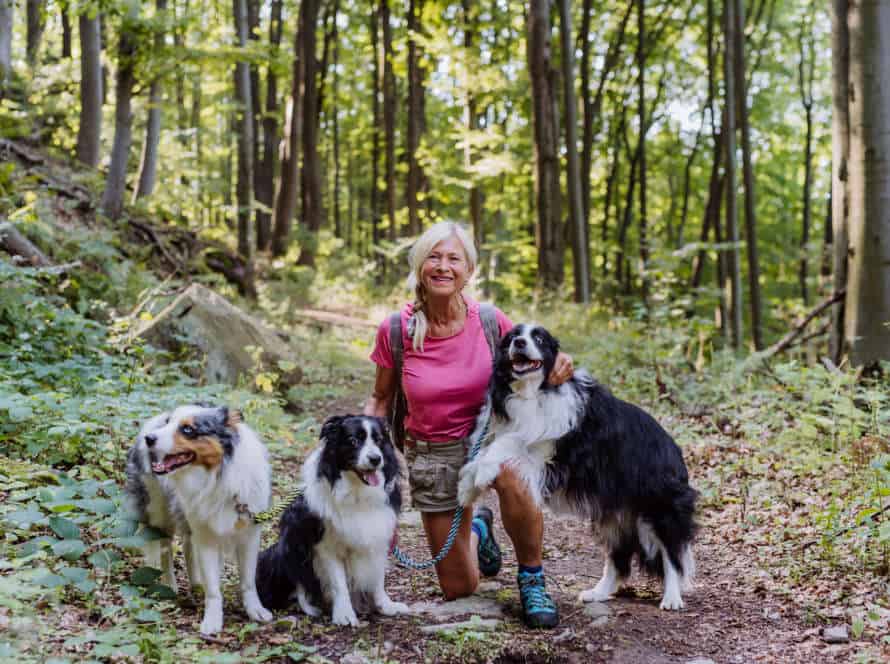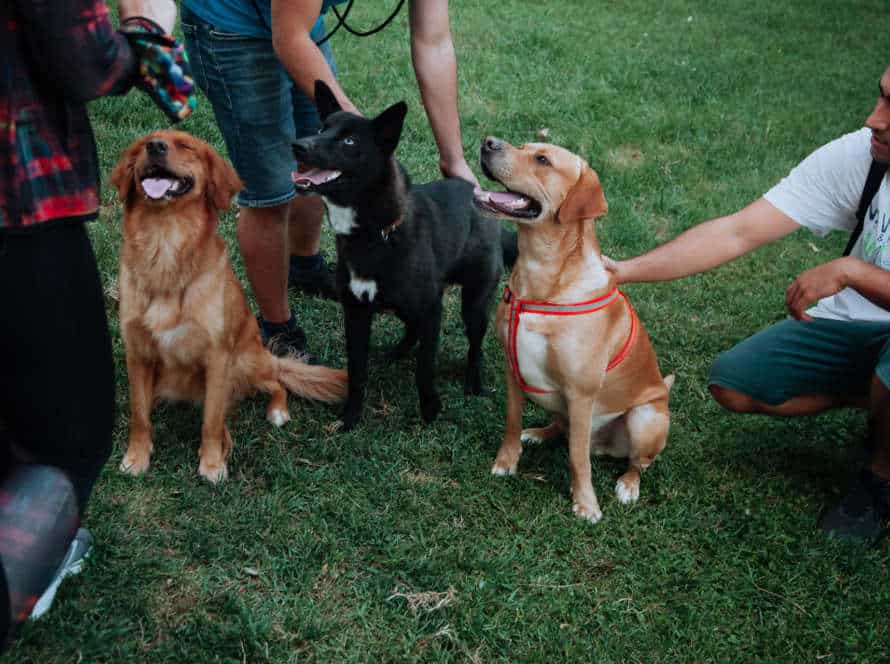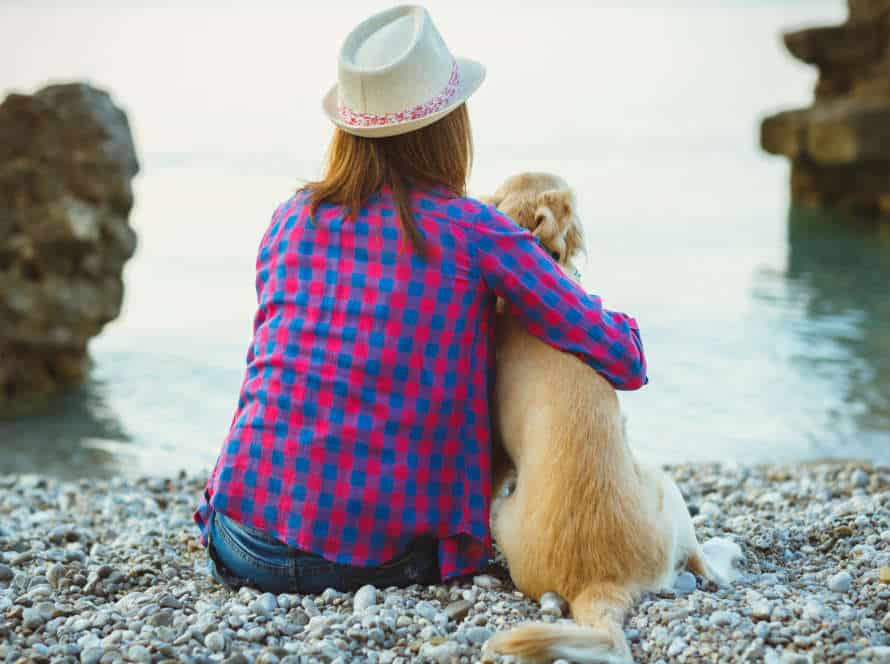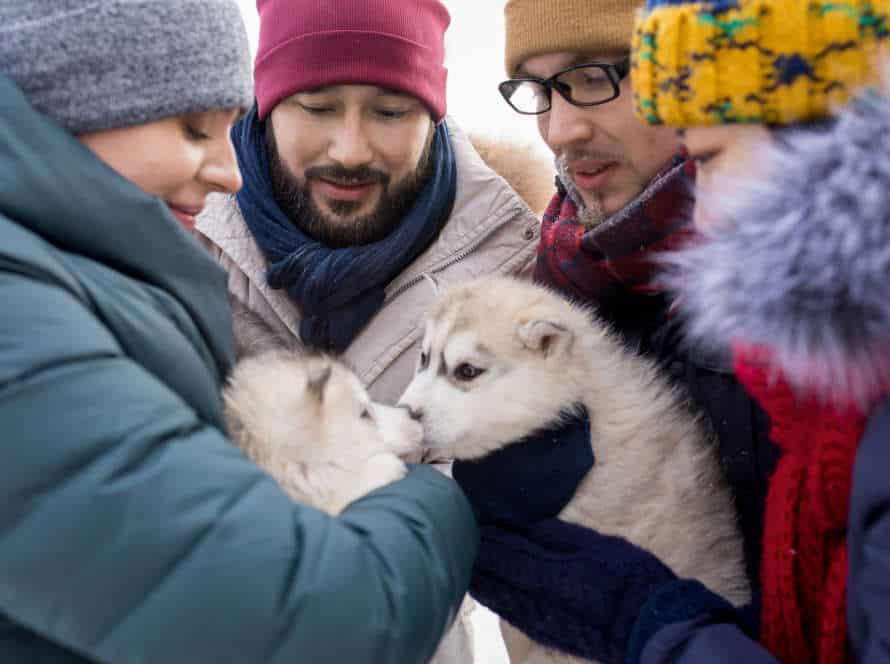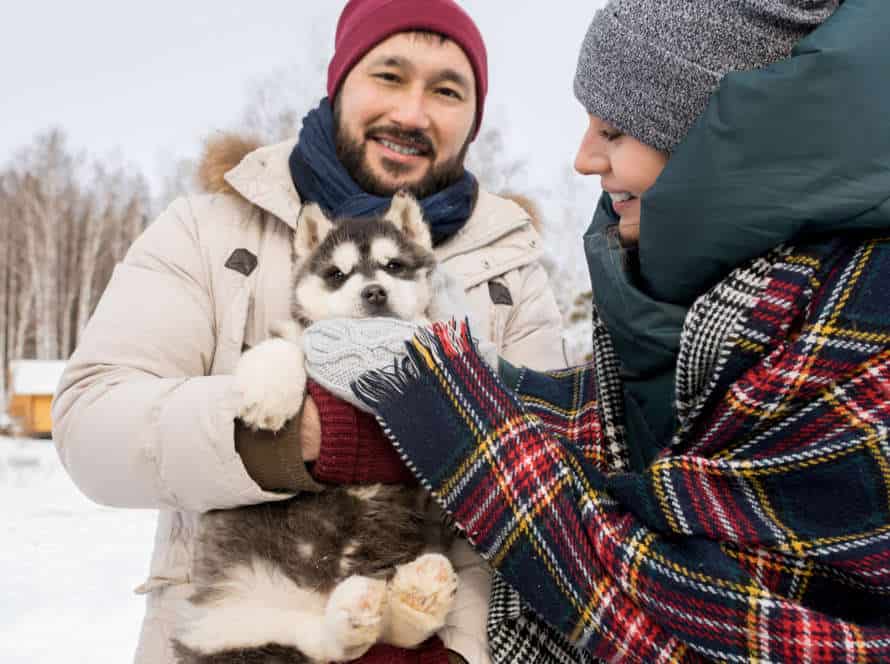Capitalizing on the Peak Learning Period for Puppies
Puppies’ peak learning is between 3 and 14 weeks. It’s vital to use this time for them to become healthy, well-behaved adult dogs. These puppies are open to learning during this period. So, socializing, training, and exposing to different environments is necessary to prevent future behavioral issues. Here are some tips to make the most of this window:
- Get them used to other dogs, people, and different situations.
- Teach basic obedience commands like ‘sit’, ‘stay’, and ‘come’.
- Make sure they experience different sounds, sights, and smells.
- Offer plenty of playtime and exercise to help them grow mentally and physically.
By using this special period wisely, you’ll create a strong base for your pup to become a content and healthy adult dog.
Understanding the Peak Learning Period for Puppies
It is important to know the peak learning period for puppies. This is when pups are most open to learning new behaviors. Maximize this time by understanding it! What is this peak learning period? It’s the best time to help your pup learn. Take advantage of it!
What is the Peak Learning Period?
The peak learning period for puppies is very important. It’s usually between 3 and 14 weeks of age. During this time, it’s great to expose them to lots of positive experiences and social situations. Examples are meeting new people, other animals, and exploring new environments. Plus, they can learn basic commands and obedience training. Positive reinforcement and socialization will help them become a confident adult dog. Each puppy is different though, so the peak learning period may vary. As a responsible pet owner, it’s important to talk to a vet or canine behaviorist if you have any worries.
When does the Peak Learning Period occur?
Puppies learn best between 3 and 14 weeks of age – known as the “critical period”. During this time, they absorb what is around them quickly. It’s important to seize this period to give your pup the best possible start. Here are some tips:
- Introduce your pup to people, other pets, sounds, and experiences to help them socialize and become more confident.
- Teach basic commands like “sit“, “come” and “stay“.
- Reward with treats, praise, and attention.
- Avoid punishment or negative reinforcement.
Pro Tip: The peak learning period is key, but you can still teach older dogs new tricks. Training and socialization can be beneficial for dogs of all ages.
Why is this period critical for puppy development?
The 3-14 week period is critical for puppy development. It’s their peak learning time. They are more able to learn & form lasting impressions of their environment & experiences.
Why is this period so important?
- Socialization: Puppies can more easily socialize and form positive associations with people, animals & places.
- Training: Obedience, potty & crate training should begin during this period as puppies can easily understand & remember commands.
- Behavioral development: Dogs learn bite inhibition, how to interact with other dogs & manage stress during this period. Positive experiences then lead to a well-behaved, confident & resilient adult dog.
To get the best out of this period, use patience, consistency & positive reinforcement training. This will help your puppy have a happy and successful life.
Training for Success during the Peak Learning Period
Pups are like sponges! Ready to soak up info. With the right guidance, they can be taught to be obedient and good pets. It is key to know when to start training.
The Peak Learning Period is a time when puppies are most open to being taught. During this period, puppies can be trained most effectively for success. Let’s explore this peak learning time!
Socialization Training
Socialization training is a must for puppies! This critical period is 3-12 weeks old. It’s the best time for good experiences that will stay with them forever.
To socialize them, expose them to lots of new people, animals and places. This includes children, other dogs, car rides, and different sounds and smells.
Here are some tips:
- Start early!
- Do it gradually and positively.
- Use positive reinforcement like treats, praise, and toys.
- Keep it safe and supervised.
- Be calm and patient. Don’t force them.
This is your chance to make sure they become well-balanced, confident adult dogs.
Basic Obedience Training
Training puppies during their peak learning period is key for a happy and well-behaved adult dog. Here are tips to make the most of it:
- Start training between 8-16 weeks, when they are most open to learning.
- Use treats, praise, and play to reward good behavior.
- Keep sessions short, 10-15 minutes each time.
- Teach commands like sit, stay, come, and heel.
- Be consistent. Practice commands daily until they become a habit.
- Reinforce good behavior outside of training.
- Make it fun by incorporating play and affection.
Potty Training
During a puppy’s peak learning period, potty training is essential for future success. This is when your pup’s mind is growing quickly and they are open to new things.
For successful potty training, here are some tips:
- Create a routine for taking your puppy outside regularly, especially post meals and naps.
- Give positive reinforcement like rewards or compliments when they go potty outdoors.
- When you cannot supervise, confine your pup to a tiny area or crate to avoid messes indoors.
- Use consistent verbal commands like “go potty” or “outside” for potty time.
- Be consistent and patient with the training and don’t punish accidents.
Potty training takes effort and time, but capitalizing on the peak learning period makes it simpler.
Effective Techniques for Teaching Puppies during the Peak Learning Period
It’s the optimum time for training and socialising your pup! This ‘peak learning period’ begins when they are 8-10 weeks and lasts up ’til 16-18 weeks. They are very open to new ideas and experiences now, so it’s the perfect moment to start using successful methods. Let’s have a look at what strategies you can use!
Positive Reinforcement
Positive reinforcement is a great way to teach puppies. Rewards like treats or praise motivate them to learn. Here are some tips to use it effectively:
- Give high-value treats to grab their attention and motivate them.
- Reward them immediately after they do the desired behavior.
- Be consistent with rewards and don’t punish them. Redirect their attention to a desirable behavior and reward them.
- Keep training sessions short, max 5-10 minutes.
With consistent reinforcement, your puppy will quickly learn and have a positive association with training.
Clicker Training
Clicker training is great for young pups! It uses positive reinforcement to reward desirable behaviors. This technique uses a special clicker device that makes a distinct sound. With this tool, puppies can learn commands and tricks quickly!
Here are some tips to use clicker training during the pup’s peak learning period:
- Start with basic commands like ‘sit’ or ‘stay’.
- Be consistent! Reward the desired behavior with a click and a treat or praise.
- Keep training sessions short, around 10-15 minutes.
- Be patient and gentle with your pup. Use positive reinforcement instead of punishment.
Pro Tip: Clicker training works for all ages of pooches – not just puppies!
Crate Training
Crate training is a great way to teach puppies during the best time for learning – between 3 and 14 weeks old. It helps create a safe space, avoid bad behaviour and make house training easier.
Here are some tips to make it work:
- Introduce the pup to the crate gradually.
- Reward them with treats and praise for going in.
- Never use the crate as punishment.
- Choose a comfy, spacious and well-ventilated crate.
- Set a routine for meals, play and crate time.
- Gradually increase the time the pup spends in the crate until they’re used to it.
Remember: Patience and consistency are the keys to success. Give your pup plenty of love, care and attention to help them feel secure!
Common Mistakes to Avoid when Training Puppies during the Peak Learning Period
Puppies possess a special knack for learning and remembering new commands during their best learning span, from 8 to 16 weeks. That’s why many dog owners start teaching their canine friends during this time. But, there are mistakes that dog owners make that can slow down the pup’s learning. Let’s look at some of these problems and how to sidestep them.
Using Physical Punishment
Lots of puppy owners make a mistake of using physical punishment to train their furry pals in the peak learning period. This can create fear and aggression in puppies, and even trust issues in the future.
So, here are some tips on how to use the peak learning period effectively:
- Don’t hit or spank the puppy when they make mistakes. Instead, use treats, praise and toys as rewards for good behavior.
- Don’t overwhelm the pup with too many commands or long training sessions. Keep it short and simple, no more than 10-15 minutes, and concentrate on one command.
- Be consistent. Have clear boundaries, and set up routines to gain the pup’s trust and confidence.
By skipping physical punishment and using positive reinforcement, you can train your puppy successfully and build a strong relationship based on love and trust.
Expecting Too Much Too Soon
When training your pup during its peak learning period (3-14 weeks old), it’s important to avoid expecting too much too soon. Here are some common mistakes and tips to prevent them:
- Don’t teach too many commands at once. Start with the basics like “sit,” “stay,” and “come” and build up.
- Be consistent with your training schedule, commands, and rewards.
- Get your pup used to different people, places, and sounds – this is great for socialization.
- Use positive reinforcement to reward good behavior instead of punishing bad behavior.
- Remember to crate train too – it helps with housebreaking and destructive behavior.
Progress may take time, so be patient and persistent with your pup’s training.
Inconsistency in Training Methods
Mistakes to avoid when training puppies: inconsistency in methods. Puppies need routine and consistency. Deviation can lead to bad behavior. Here are tips to maintain consistency:
- Set up a routine: meals, potty breaks, playtime, and training.
- Use same commands: words and hand gestures.
- Involve everyone: family members and anyone else involved, should use same methods.
- Positive reinforcement: use positivity and avoid punishment.
By following these tips, you can create a consistent training routine and make the most of your puppy’s peak learning period.
Maximizing the Peak Learning Period for Puppies
Puppies have a peak learning period between 8-11 weeks. It’s important to give them positive experiences. This could be new environments, people, and animals. It helps them create good habits. Socialising the pup during this period reduces the risk of fear-based behaviours, like aggression or anxiety, in adulthood. Here’s an overview on how to make the most of this peak learning period.
Building Rapport and Trust with Your Puppy
Maximizing your pup’s peak learning period (8-16 weeks) is essential for their overall social and behavioral growth. Here are some tips to help create a strong relationship with them:
- Invest quality time into play and training each day.
- Introduce them to different people, animals, and places to aid in socialization.
- Utilize positive reinforcement to reward desirable behaviors and discourage undesirable ones.
- Set boundaries and expectations to create structure and a sense of security.
By building trust and rapport during this key learning period, you’re not only setting them up for success but also creating a lifelong bond.
Consistency and Patience in Training
Training a puppy needs patience and consistency. Understand their peak learning period to make use of their receptive mode. Here are some tips:
- Be consistent. Use same commands and cues with pup. Training sessions should be brief, frequent, and positive.
- Have patience. Pup are still learning. Guide them gently and show the correct behavior.
- Capitalize on the peak learning period. 8 to 16 weeks is when they are most receptive. Teach them basic commands and good behaviors.
- Train using positive reinforcement. Treats, toys, and praise reward good behavior. Negative reinforcement can lead to aggression and fear.
By following these tips, your pup will develop into a well-behaved and trained dog.
Seeking the Help of Professional Trainers when needed.
Puppies have a super-learnin’ time between 8-16 weeks. Capitalizing on this period is key, so gettin’ help from a pro is a must. Here’s why:
- Early intervention – trainers can spot and stop bad habits before they become a part of your pup’s life.
- Customized training – a plan that fits your pup’s breed, age and temperament.
- Faster results – professional trainers use methods that work quickly and efficiently.
- Better socialization – teaching your pup to be friendly with other dogs and people.
Investin’ in your pup’s trainin’ now pays off later! Pro tip – always choose a pro who knows your pup’s breed and age.
Frequently Asked Questions
1. What is the peak learning period for puppies?
The peak learning period for puppies is their first 16 weeks of life.
2. Why is it important to capitalize on the peak learning period for puppies?
Capitalizing on the peak learning period for puppies can help them learn the necessary skills and behaviors they need to become well-adjusted adults.
3. What kind of training should be done during the peak learning period?
Potty training, basic obedience training, and socialization training should be done during the peak learning period.
4. How long should training sessions be during the peak learning period?
Training sessions should be short, no longer than 15 minutes, to prevent overstimulation.
5. What are some signs that a puppy is overwhelmed during training?
Signs that a puppy is overwhelmed include yawning, avoiding eye contact, and being easily distracted.
6. Can training be done outside the peak learning period?
Training can still be done outside the peak learning period, but it may take longer for the puppy to learn new behaviors and skills.

